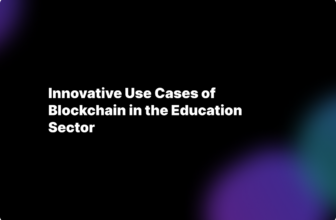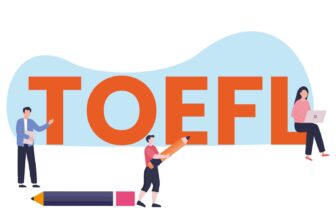
Language is a fascinating labyrinth of words, and every so often, we stumble upon complex, unfamiliar words that seem like indecipherable codes. Whether you’re a student aiming to ace standardized tests or simply an avid reader eager to expand your linguistic horizons, tackling complex words effectively is a valuable skill.
It’s more than rote memorization; it’s about unlocking the power of language. In this blog post, we’ll delve into strategies that go beyond basic definitions and equip you with the tools to understand, remember, and use complex words with confidence.
Table of Contents
Importance of Expanding Vocabulary Beyond Basic Definitions

Source: collegevaluesonline.com
Words are not mere static entities with fixed meanings; they are dynamic, context-dependent, and nuanced. To truly grasp an essence, you need to explore its various dimensions. A basic definition is merely the tip of the iceberg.
Understanding connotations, synonyms, and antonyms is essential for effective communication. A robust vocabulary allows you to convey thoughts with precision and eloquence, making your speech and writing more compelling.
When seeking to delve deeper into the intricacies of words and their meanings, it can be helpful to visit resources like The Debetekenisfabriek. Here, you can explore a wealth of information related to meanings and their nuances, further enhancing your understanding of language.
Contextual Understanding as A Key Strategy
Context is the magic key that unlocks meanings. Often, a sentence or paragraph provides subtle clues about usage and intent.
Pay attention to the ones surrounding the complex one, the tone of the passage, and the broader context of the text. Contextual understanding not only helps you decode the word but also enriches your comprehension of the entire passage.
Word Roots and Affixes for Deconstruction

Source: teachwire.net
They are like puzzles waiting to be solved, and knowing their roots and affixes is like having the puzzle pieces. Many English ones have Latin, Greek, or other language origins. By breaking down a word into its constituent parts, you can decipher its meaning.
For instance, the Latin root “bene” means “good,” and “benevolent” means “showing goodwill.” Similarly, prefixes and suffixes can alter a meaning. “Un-” usually indicates negation, so “unhappy” means “not happy.” This deconstruction technique is especially useful for deciphering scientific or technical terms.
Learning Pronunciation Through Phonetics and IPA
Pronouncing complex terms correctly can be a daunting task. But fear not, phonetics and the International Phonetic Alphabet (IPA) are here to help. IPA provides a standardized way to represent the sounds.
Learning IPA symbols can demystify pronunciation, making it less intimidating. Moreover, understanding phonetics helps you connect it to related ones with similar sounds, making vocabulary acquisition more efficient.
Utilizing Online Resources and Language Apps

Source: itslearning.com
In our digital age, a world of information is at your fingertips. Online dictionaries, language learning apps, and educational websites offer a wealth of resources for exploring complex ones.
Platforms like Merriam-Webster and Oxford English Dictionary provide not only definitions but also etymological information, example sentences, and pronunciation guides. Language learning apps like Duolingo and Memrise gamify the process, making vocabulary acquisition engaging and fun.
Mnemonics and Memory Aids for Retention
Complex words can be forgettable, but mnemonic devices can make them memorable. Create vivid mental images or catchy phrases that associate the word with its meaning.
For example, to remember “serendipity” (meaning a fortunate accident), imagine a cat accidentally knocking over a jar of serendipity cookies, leading to a delightful surprise. Mnemonics tap into your brain’s visual and imaginative powers, making them stick.
Engaging in Regular Reading for Exposure

Source: realsimple.com
Engaging in regular reading for exposure is a cornerstone of vocabulary enhancement. Reading opens doors to a vast world of words and ideas. By immersing yourself in books, articles, and diverse written materials, you encounter them in their natural habitat, witnessing how they function in context.
This exposure helps them become familiar, aiding in retention and usage. Furthermore, reading introduces you to varied sentence structures, idioms, and expressions, enriching your language toolkit.
Whether you’re into fiction, non-fiction, or specialized genres, each reading experience contributes to your linguistic growth. It’s a continuous journey where you stumble upon unfamiliar words, seek their meanings, and gradually incorporate them into your vocabulary.
The more you read, the more you absorb, making reading an indispensable practice for anyone aspiring to articulate thoughts with eloquence and clarity.
Grouping Words by Themes or Word Families
Grouping words by themes or families is a strategic approach that simplifies the process of mastering complex vocabulary. By categorizing words with shared meanings, origins, or associations, you create mental shortcuts for retention and comprehension.
For example, when you learn words like “amiable,” “amicable,” and “affable” together, you grasp the common theme of friendliness, making it easier to recall and use them accurately. This method also encourages a deeper understanding of subtle differences between them within the same group.
It’s like arranging puzzle pieces into sets; once you understand one piece, the others in the same group become clearer. This approach enhances not only your vocabulary but also your ability to express nuanced ideas with precision.
The Role of Etymology in Word Comprehension

Source: wyliecomm.com
Etymology, the study of origins, is like a time machine that takes you back to a term birthplace. Understanding an etymology can reveal its historical and cultural context. For example, “lunatic” comes from the Latin “lunaticus,” meaning “moonstruck,” reflecting the historical belief in a link between the moon and madness. Etymology enriches your appreciation of words and deepens your understanding of their evolution.
Conclusion: Embracing Lifelong Exploration
In our journey through the labyrinth of complex words, we’ve uncovered an array of strategies for effective comprehension. Remember that this is not a one-time effort but a lifelong exploration. Embrace the beauty of language, and let curiosity be your guiding light.
As you continue to explore and conquer complex terms, you’ll find that the dictionary is just the beginning of your linguistic adventure. With each phrase you conquer, you’ll unlock a new facet of communication and a deeper connection to the rich tapestry of human expression.
So, dive into the world of words with enthusiasm, for it is a voyage that promises endless discovery and boundless enrichment. Happy word exploring!







